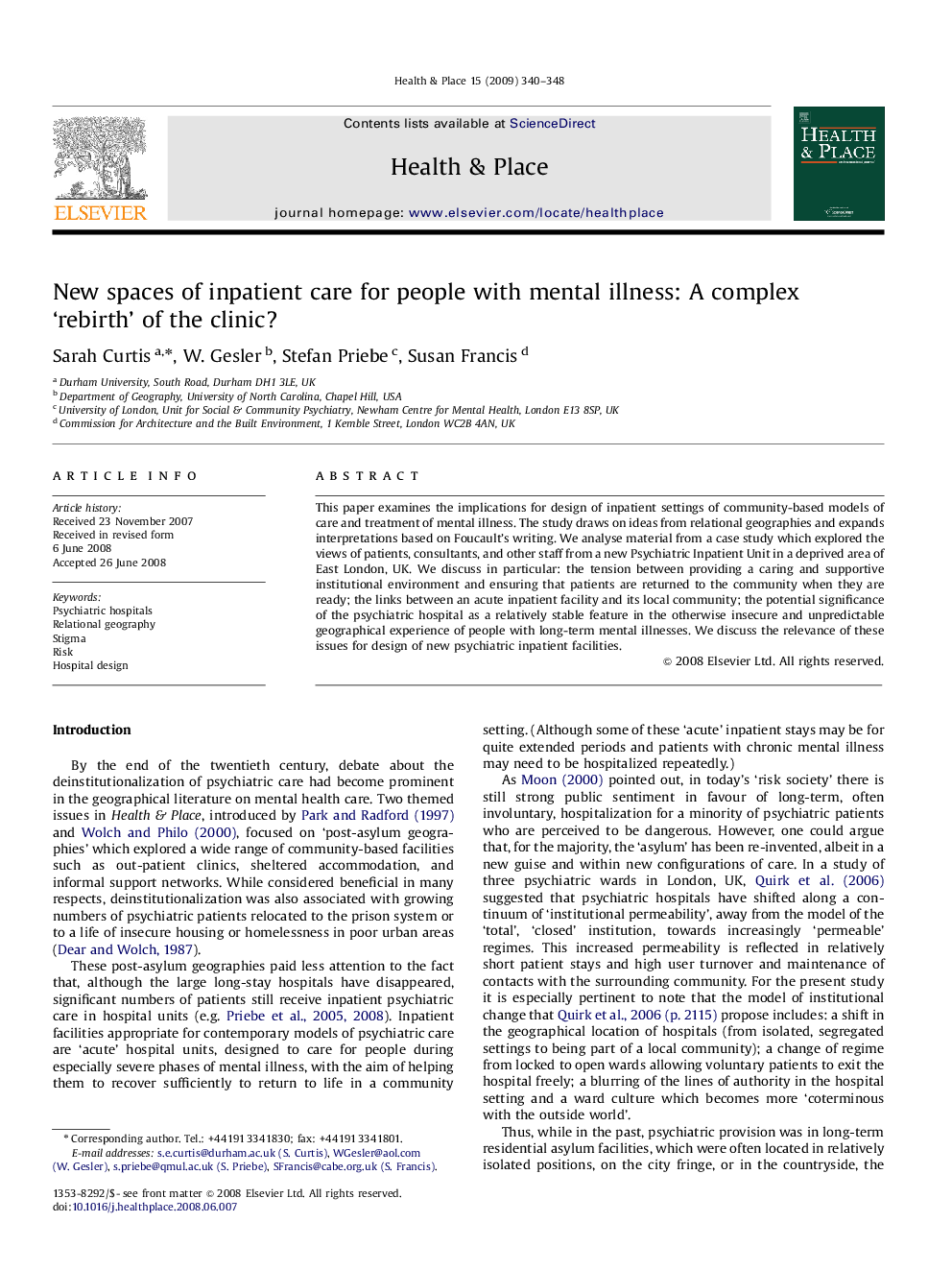| Article ID | Journal | Published Year | Pages | File Type |
|---|---|---|---|---|
| 10502986 | Health & Place | 2009 | 9 Pages |
Abstract
This paper examines the implications for design of inpatient settings of community-based models of care and treatment of mental illness. The study draws on ideas from relational geographies and expands interpretations based on Foucault's writing. We analyse material from a case study which explored the views of patients, consultants, and other staff from a new Psychiatric Inpatient Unit in a deprived area of East London, UK. We discuss in particular: the tension between providing a caring and supportive institutional environment and ensuring that patients are returned to the community when they are ready; the links between an acute inpatient facility and its local community; the potential significance of the psychiatric hospital as a relatively stable feature in the otherwise insecure and unpredictable geographical experience of people with long-term mental illnesses. We discuss the relevance of these issues for design of new psychiatric inpatient facilities.
Related Topics
Health Sciences
Medicine and Dentistry
Public Health and Health Policy
Authors
Sarah Curtis, W. Gesler, Stefan Priebe, Susan Francis,
